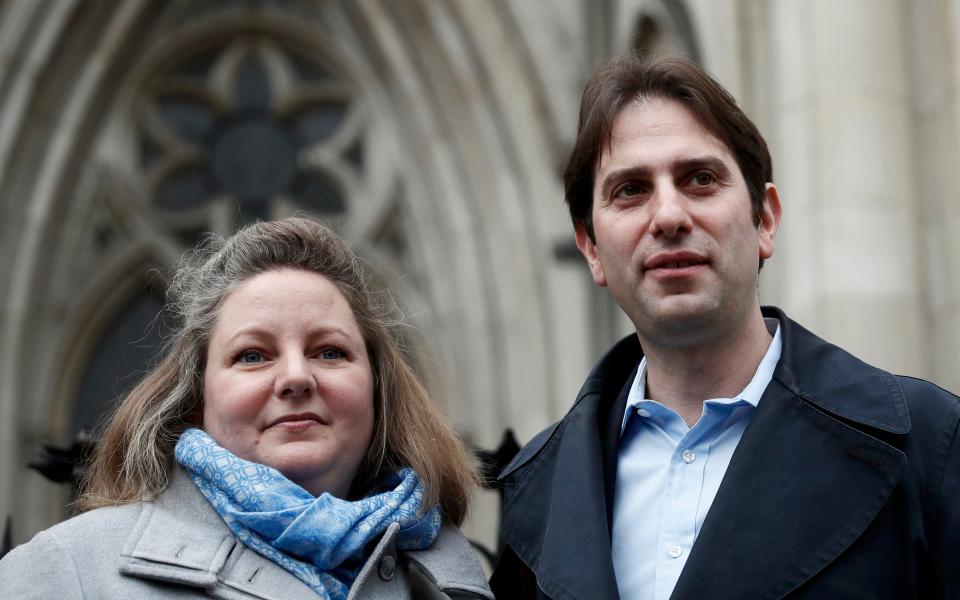It is unfair and illogical to deny someone a civil partnership just because they happen to be straight
The debate over same sex marriage is over. Over 15,000 couples have taken advantage of the new opportunity and the world has not fallen in. However, as some of us argued at the time, the extension of marriage unwittingly created a new inequality. Marriage is now available to same sex and opposite sex couples, while civil partnerships are still available only to same sex couples.
Some people may say: so what? They have always been able to get married, in a church, in a register office, even in medieval castles or exotic beaches. The problem is that a great many opposite sex couples choose not to go down the marriage route. The ONS estimates that there are some 2,893,000 cohabiting opposite sex couples in this country and around a third of them have children. Cohabitation is the fastest growing form of family in the UK and we need to recognise that our society is changing, just as we did when recognising same sex partnerships in law back in 2004.
Within this context and despite a growing campaign, the Court of Appeal on Tuesday ruled in favour of the Government’s position (for a change) and rejected the appeal of Charles Keidan and Rebecca Steinfeld to have their civil partnership allowed. But the decision was made on a split judgement the Court was clear that this is an inequality that the Government must address.
People choose not to get involved in the paraphernalia of formal marriage for a variety of reasons. Perhaps it is too much of an "establishment" thing to do; perhaps they see it as an iinnately religious institution for many (even if done in a register office it has religious connotations); some see it as having a patriarchal side. Those are not my own views, but they are certainly the views of many people in Britain. And for them there is no way of having their loving long-established relationships recognised in the eyes of the state.
It flies in the face of notions of equality. We both feel discriminated on the ground of our sex. If we were in a same-sex relationship we’d be able to have a civil partnership.
Jimmy Pierce
Particularly worrying is the common misconception that there is such a thing as a common law wife or husband – as too many people find out abruptly after the death of a partner when they receive an inheritance tax bill on their family home. There is no automatic entitlement to shared property, even if you've been paying into the mortgage. Where one partner is much older than the other and there is a reasonable expectation that one will die some years before the other, the long-term survivor would not receive the same tax benefits as a spouse or civil partner. Offering formalised opposite sex civil partnership could save a lot of retrospective ignorance and ensuing heartache.
These are all reasons why I am promoting a Private Member’s Bill to extend civil partnerships to opposite sex couples and have been trying to change the legislation since 2013 with support from all sides of the House.
This change is very straightforward. Just as with same sex civil partnerships, it would not be possible for someone to become a civil partner with a close family member, or if that person was already in a union, and the union would need to be subject to the same termination criteria. All that is required is a simple one-line amendment to the Civil Partnership Act 2004.
In the Government’s original consultation before the Marriage (Same Sex Couples) Act 2013, 61 per cent of respondents were in favour of extending civil partnerships to opposite-sex couples. Alas, for some inexplicable reason, it never made it into the legislation, which would have made it a better and fairer Act. The Government is reluctant to revisit this unfairness.
Aside from the equality question, there is a further major practical benefit in opening up civil partnerships to opposite-sex couples: family stability. We know that marriage works, but we also know that civil partnerships are beginning to show evidence of greater stability for same-sex couples, including those who have children through adoption for example. There is a strong case for believing that extending civil partnerships would improve that stability for many more families in different ways. It would offer the prospect of greater security and stability, less likelihood of family breakdown, better social and financial outcomes. That surely is progress.
Opposite-sex civil partnerships would not be unique in this country. In South Africa, the Civil Union Act 2006 gave same-sex and opposite-sex couples the option to register a civil union by way of a marriage or a civil partnership on the same basis. In France, the pacte civil de solidarité (PACS) was introduced in 1999 as a form of civil union between two adults of the same sex or the opposite sex, and now gay marriage has been added to that. Interestingly, only one in 10 PACS has been dissolved in France, while one in three marriages ends in divorce.
Government should allow people to be as free as possible to make their own decisions without harming the freedom of others. So what on earth is it doing resisting making it lawful for couples who love each other but happen to be of the opposite sex to enter into a civil partnership – when it allows that very same freedom to people of the same sex? The current situation is unfair, illogical and needs to change, and that is exactly what my Bill will do and with minimum fuss.



